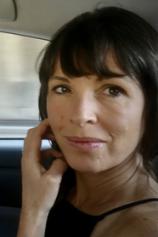Reading Group Guide
Discussion Questions
Arlington Park: A Novel

1. What is the effect of the stormy weather that permeates the novel? How does the author use tangible details to convey intangible aspects of her characters’ lives?
2. What is the source of Juliet’s rage? To what extent are her feelings toward husband, her children, and her job common among women in her situation? Has the sense of possibility truly been extinguished in her, as she fears?
3. Amanda’s car gives her a sense of control and escape, while Eddie continually makes her feel trapped. Where do the impressions and the reality of her life intersect? How does her current level of freedom compare to that of her previous life in business? Is her perfectionism an adequate tonic?
4. How is Christine’s perception of the journey to mall different from that of her friends? What does she realize about herself during this trip through the lesser suburbs, where saleswomen hawk thinness and the dressing rooms provide a common denominator?
5. Is Liz Connelly out of touch, or is she the most aware woman in her neighborhood? What does her religious awakening mean to her? Does it cause her to be a better or worse mother to Owen?
6. What were Maisie’s expectations upon leaving London? What does her reaction to the parking-lot incident with Jasper say about her, and about her neighbors?
7. Why was it important for Solly to know that Paola had been married and was a mother? Why was Paola able to take bigger risks than the women of Arlington Park seem to have taken? Would you have preferred to have Betty, Katzmi, or Paola in your home?
8. What was your reaction to the scene when the rain stopped and you were able to eavesdrop as the children and their mothers enjoyed the park? Was there a theme to their chatter?
9. How do your book club’s discussions compare with those of Juliet’s Literary Club? Why does she identify with the Brontë sisters to such a high degree?
10. What does the story of Juliet’s hair (from the memories of her mother to the nightmares she has as an adult) indicate about her changing attitudes toward her life?
11. Discuss the genre of twenty-first-century motherhood in general, as it appears on television dramas as well as in books. What dilemmas are presented to contemporary mothers? When Christine and her mother talk on the phone, what distinctions become apparent about the roles of wife and mother between two generations? Which generation of women has less anxiety?
12. What is the effect of reading a novel in stories, with Juliet’s haircutting narrative separated by other scenes? What innovations does the author apply to point of view and time lines? How does she balance humor and reverence?
13. How does each couple in Arlington Park manage the question of economics? How does money factor into their sense of status, and how does it affect power within the relationships? Which couples seem to be the best matches? Do the best-suited couples realize how compatible they are?
14. Which of the characters resonates with your experience? Is this circle of neighbors typical of those found in suburban America?
15. Describing Dom and Maisie’s house on Roderick Road, the author writes, “The kitchen was like a person with whom she had tried to get on and failed.” How do the characters’ homes, or even specific rooms, mirror their identities? How do Cusk’s descriptions of the various settings enhance her development of the characters?
16. What gender distinctions become apparent during the dinner party in the closing chapter? Knowing as much as you do about the guests’ private thoughts, do you believe they interact in an authentic way? Are their greatest fears eased or stoked by an evening together?
17. What common threads run through Rachel Cusk’s fiction and her memoir? What would the characters in her previous novels have thought of the residents of Arlington Park?
Arlington Park: A Novel
- Publication Date: December 26, 2007
- Paperback: 256 pages
- Publisher: Picador
- ISBN-10: 0312426720
- ISBN-13: 9780312426729









